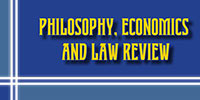Guus MEERSHOEK
MEERSHOEK G. (2023), CREATING MODERN, COMMUNITY-ORIENTED POLICE: SOME DUTCH EEXPERIENCES. PHILOSOPHY, ECONOMICS AND LAW REVIEW. Volume 3, no. 1, 210-217
DOI: 10.31733/2786-491X-2023-1-210-217
Abstract. The Netherlands differ in many respects (historically, geographically, economically) from Ukraine. Consequently, the experiences of the Dutch police are different too. Nevertheless, those experiences may be useful to Ukrainian colleagues.
After the end of the National Socialist occupation (1940-1945), the Dutch population and police wanted to forget that time as quickly as possible, to reconstruct their economy, but that turned out to be unwise: for decades a taboo on that past hindered a good relationship between the police and the citizens. That relationship was finally not restored by politicians, but by a new generation of police chiefs who learned from police abroad, in particular the Anglo-Saxon police. An important tool for improving the relationship turned out to be training police personnel in social skills: citizens require more from the police than enforcing laws. The ability to mediate in conflicts and to help finding psychosocial support strengthens policing enormously. A particular issue turned out to be dealing with misbehaving police officers.
Frontline police-managers were given a special responsibility in counteracting misbehavior, but misbehaving police officers must also be able to count on correct treatment. Organized crime poses a particular threat to society and good policing in particular. In the fight against organized crime, the police learned that the administration is an indispensable ally, but that it is important too to preserve focus and that the population must be made resilient against the lure of this kind of crime. In modern policing, a special responsibility rests on the shoulders of police chiefs: they must seek a balance between the vertical relationship with the competent authorities and the horizontal relationship with the citizens.
Keywords: police relationship with citizens, police integrity, combating organized crime, police history.
References
- Aartsma, K. & Huizing, B. (1986). De zwarte politie. Weesp. [in Dutch].
- Adang, O. & Bierman, S. [et al.], (2011). Managing collective violence around public events: an international comparison. Amsterdam.
- Ibidem, p. 389-492.
- Meershoek, G. (1999). Dienaren van het gezag. Amsterdam. [in Dutch].
- Meershoek, G. (2007). De Gemeentepolitie in een veranderende samenleving. Amsterdam, pp. 227-321. [in Dutch].
- Meershoek, G., Slagmolen, N. & Smit, A. (2020). Zorg voor politiële integriteit. Den Haag. [in Dutch].
- Projectgroep Organisatiestructuren (1977). Politie in Verandering. Den Haag. [in Dutch].
- Punch, M. (2009). Police corruption. Deviance, accountability and reform in policing. Devon.
- Reenen, P. van (2016). Politiechefs. Den Haag. [in Dutch].
- Two police officers initiated the discussion with a series of articles in a national police magazine that were later collected in a book: K. Aartsma, B. Huizing (1986). De zwarte politie. Weesp.
- Schaap, D. (2018). The police, the public and the pursuit of trust. Den Haag.
- Wever, J. (2020). Geschiedenis van de Nederlandse drugsbestrijding (1961-2011). Den Haag. [in Dutch].
